Bathroom safety
Did you know that people use the toilet seven times a day on average? That’s why bathroom safety is so important – we’re in there all the time! Bathroom aids and toilet aids are a great way to ensure safety in the bathroom.
Bathrooms are dangerous because they’re small spaces with lots of hard surfaces and corners. On top of that, sitting down and standing up can cause dizziness or unsteady balance because of changes in blood pressure. That could easily lead to a devastating fall.
Over 80% of all falls in the home happen in the bathroom. Other hazards include scalding with hot water, being locked in, carer back strain, and the risk of falls.
So how do we stay safe in the bathroom?
Tips for carers
- Make sure the bathroom is clutter-free and well lit, day and night.
- Check that the floor is not slippery. Prevent falls by removing loose mats and rugs as they can be a trip hazard.
- Make sure that the room is warm before the person undresses. Older people are more sensitive to heat and cold than younger people.
- Ensure you will not be disturbed or distracted and will not have to leave your loved one alone.
- Check that the water temperature is not too hot or too cold. A heat sensor that sticks to the side of the bath changes colour if the bath water is too hot, helping to prevent scalding.
- Consider removing locks from the bathroom door, or replace them with locks that can be opened from the outside. Someone with dementia may lock themselves in and panic, or forget why they went into the bathroom.
- Don’t leave cleaning products out. Your loved one might not recognise them and may not understand the dangers they present.
- Family caregivers, don’t forget your own safety. Without formal training in safe lifting and transfer techniques, it’s too easy to hurt yourself when helping out.
- When assisting with transfers in and out of the bath, make sure you don’t strain your back.
- Hold on to the person you are helping by the trunk or hips. Do not pull on the arms or legs, as it’s easy for you both to become unbalanced.
- Always bend at the waist.
The Helping Hand Company has a range of bathing aids that can help you keep your confidence and independence in the bathroom
Bathroom aids make it safer and easier to visit the bathroom, something we do multiple times a day. An aching back or stiff joints can make getting up from the toilet or in and out of the bath a real challenge, but our aids can give you the extra stability and support you need. Read below to find out more about our bestselling bathroom safety aids:
Raised Toilet Seat
Being unable to use the toilet unaided can really affect your confidence. If sitting down on the toilet is worrying and getting back up is difficult, an elevated seat is a convenient solution. The Helping Hand Unifix Raised Toilet Seat gives extra stability and support and is ideal for those who struggle raising and lowering. The elevated seat provides the additional height needed to allow you to sit and stand from the toilet without requiring extra assistance.
Toilet Frame
Putting a frame around your toilet can make a big difference to personal dignity. Our toilet frames are designed for those who need additional support when sitting down and getting back up from a traditional toilet seat. They give you the stability and support you need, taking the pressure away from your knees, hips and lower back, and reducing the strain in your lower body.
Bath and Shower Boards
Getting in and out of the bath can be quite a balancing act for any of us. However, by choosing a bath/shower board or shower chair, you will gain the confidence to sit over your bath to wash, or get down into the bath to stretch out and soak. Being able to sit can greatly reduce your chance of slipping, so you can enjoy safe bathing again.
Bath Seat
Enjoy the pleasures of bath time without the worry of slipping or how to get out of the bath. Our height-adjustable Kingfisher™ bath seat can be used with our bath board or on its own. This sturdy bath seat for elderly and disabled people allows you to safely sit and relax while having a wash. No need to bend.
If you are in any way concerned, talk to a healthcare professional (an occupational therapist, doctor or nurse) about a home assessment or adaptive aids that can help you.
For more information, support and advice about how to manage around the home, see these helpful UK organisations:
Age UK – The UK’s leading charity helping every older person make the most of later life.
Versus Arthritis – Pushing to defy arthritis; no one has to tolerate living with the pain, fatigue and isolation of arthritis.


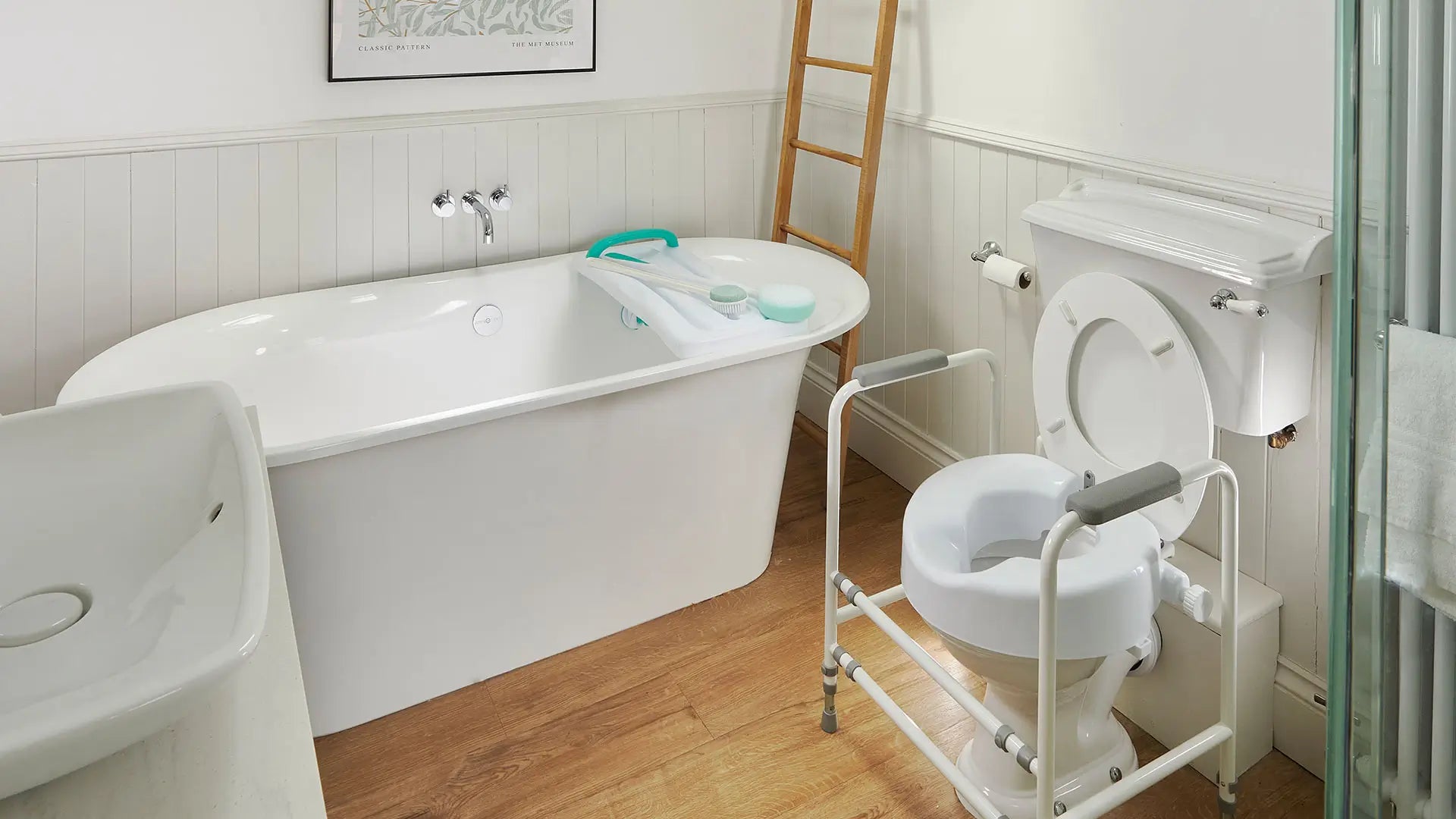
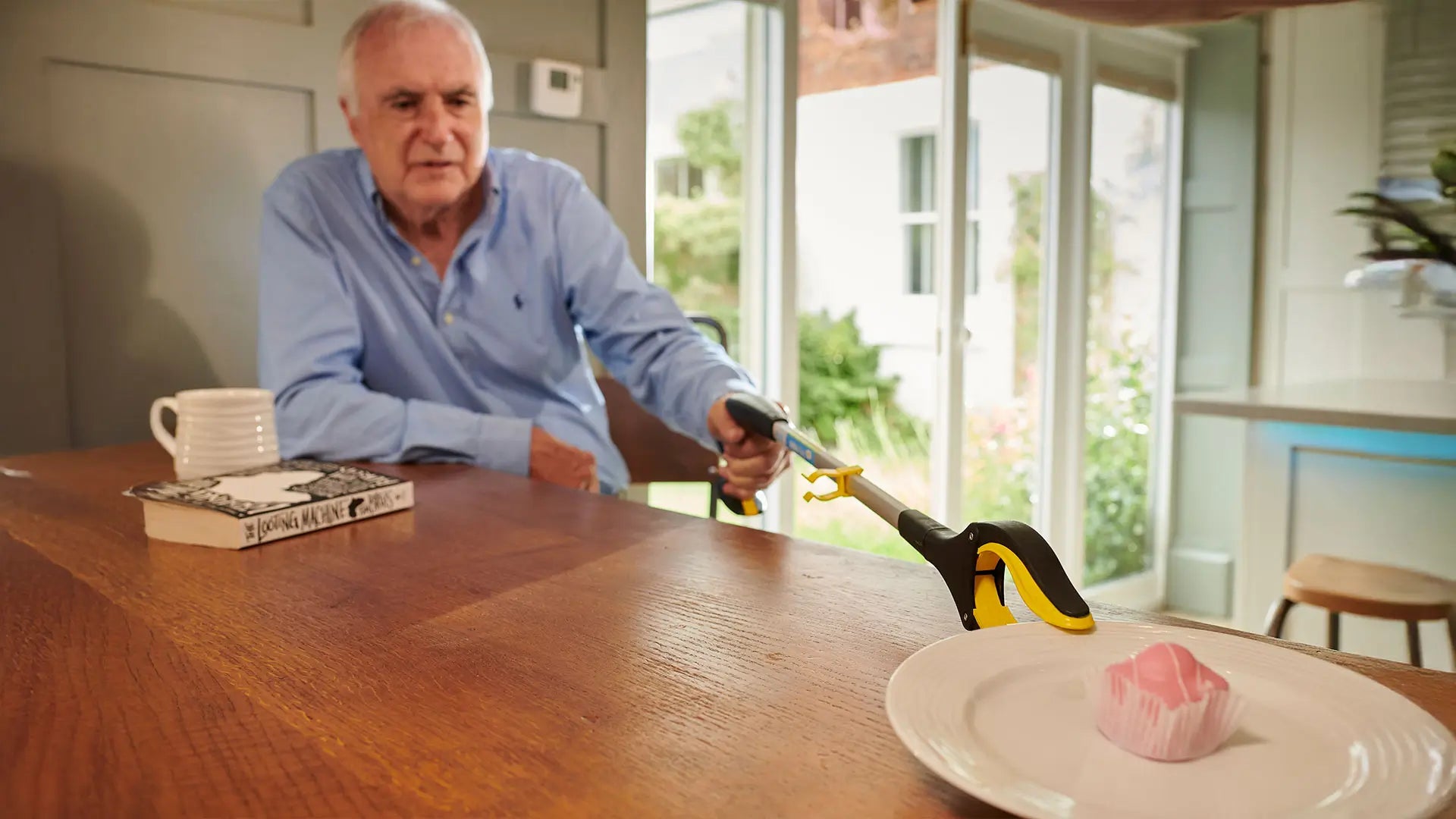
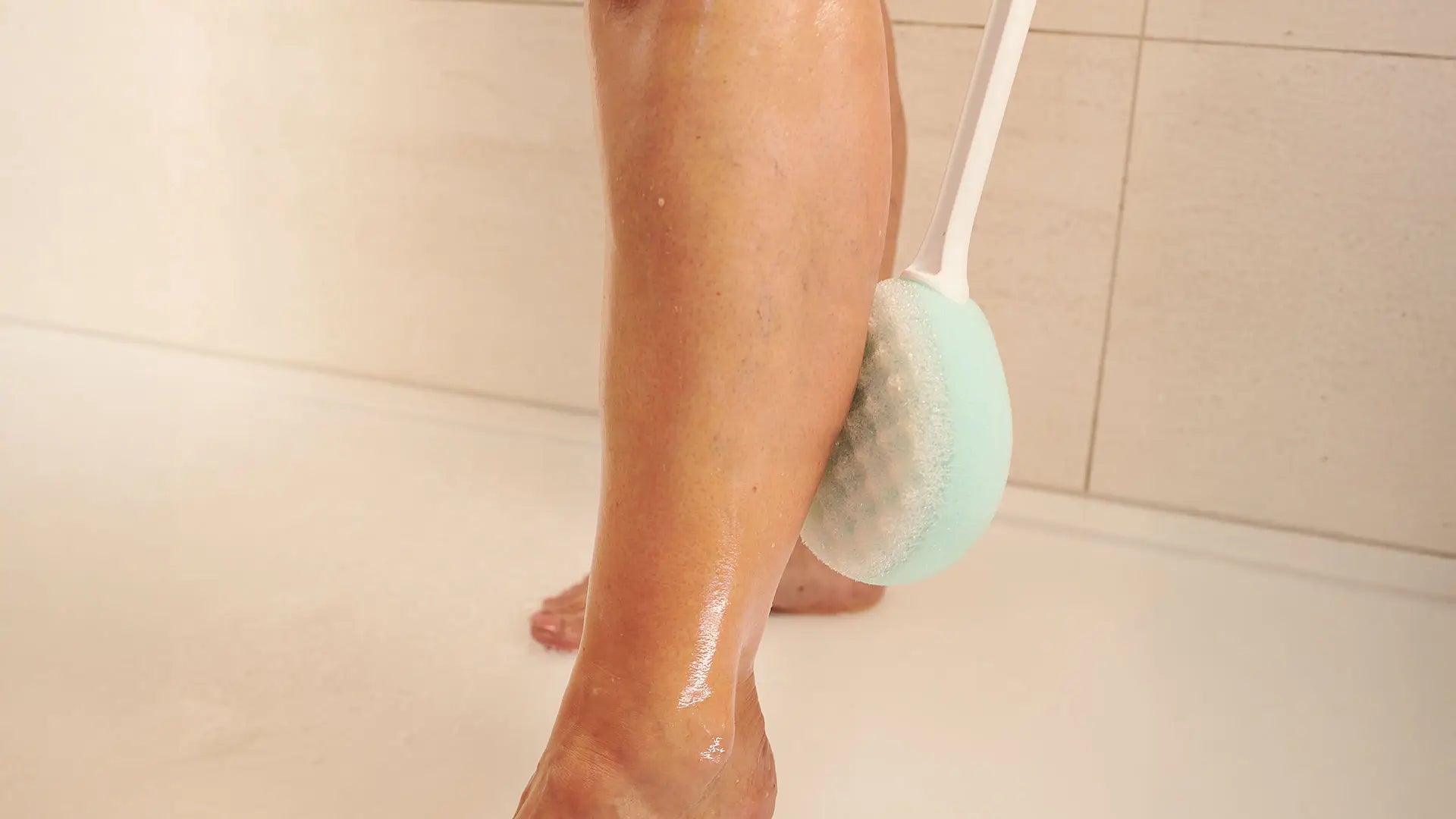
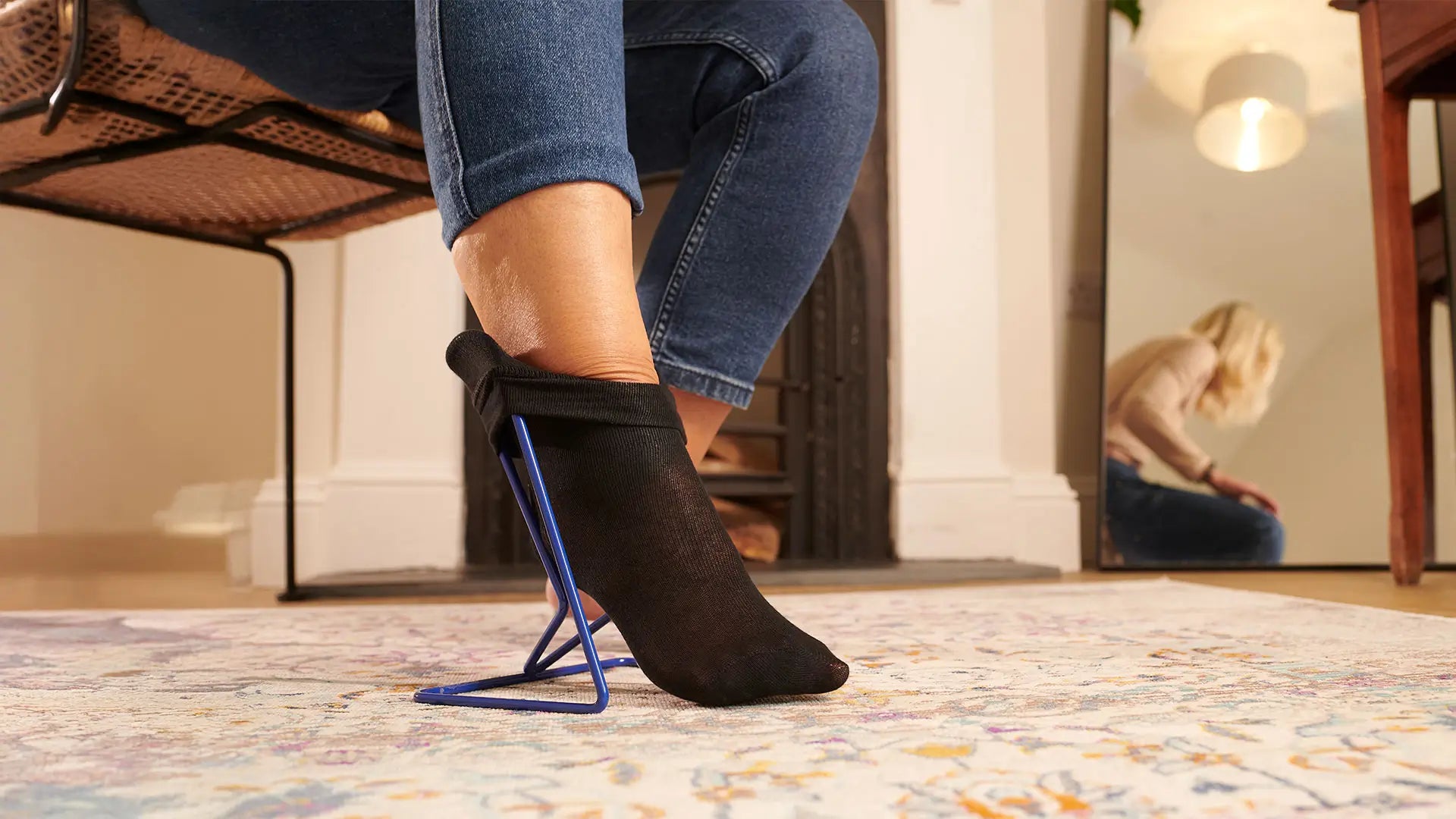
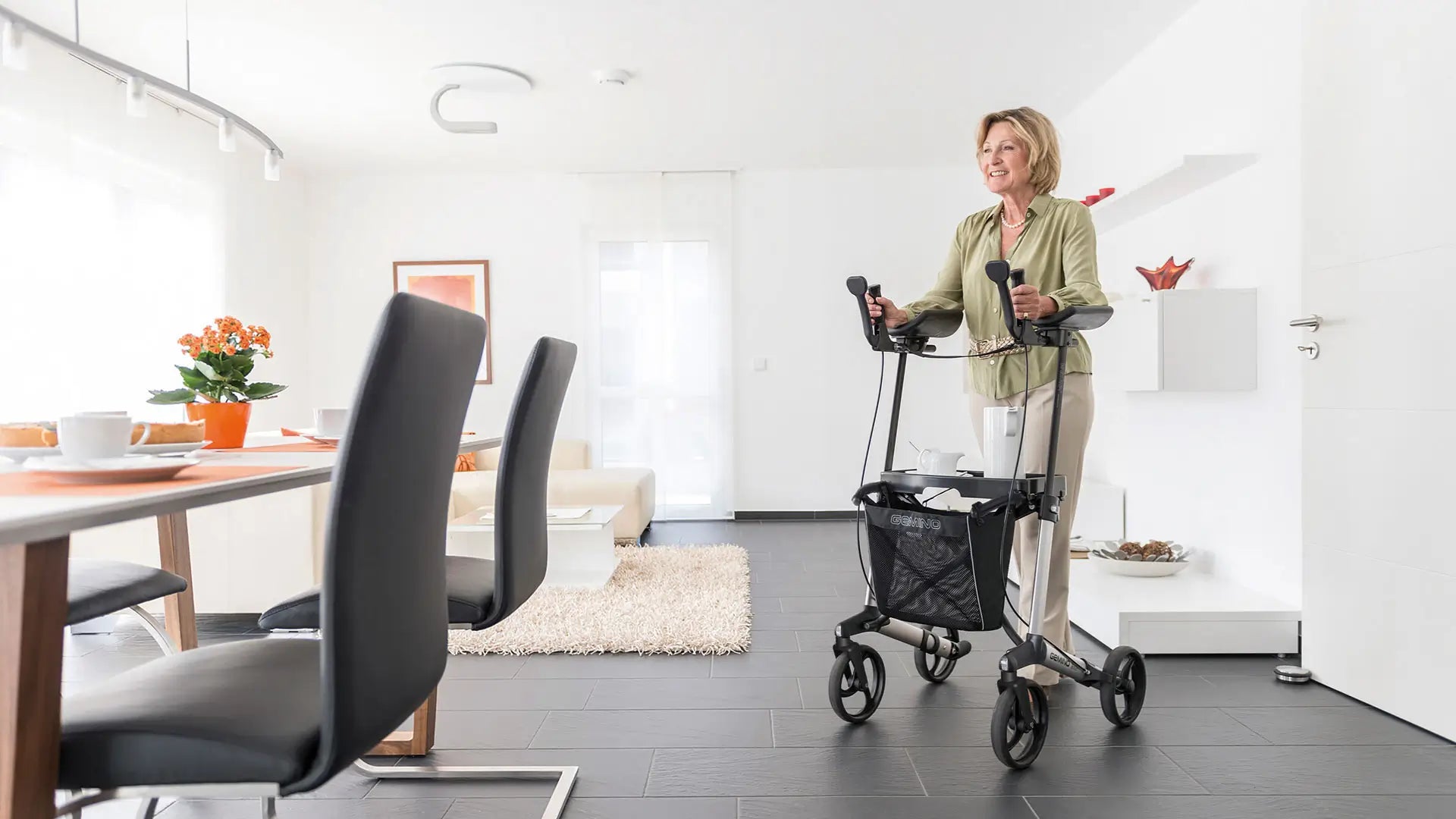
Share:
Keeping Warm and Well This Winter
Avoiding Slips, Trips and Falls at Home